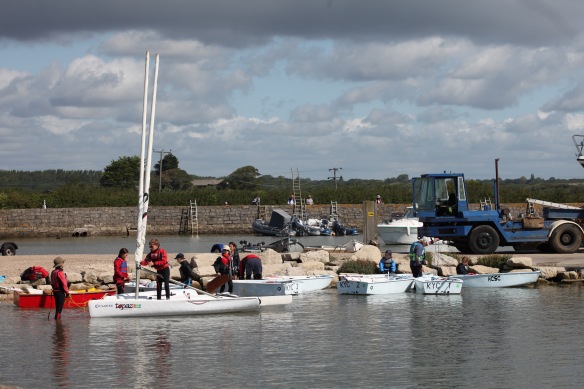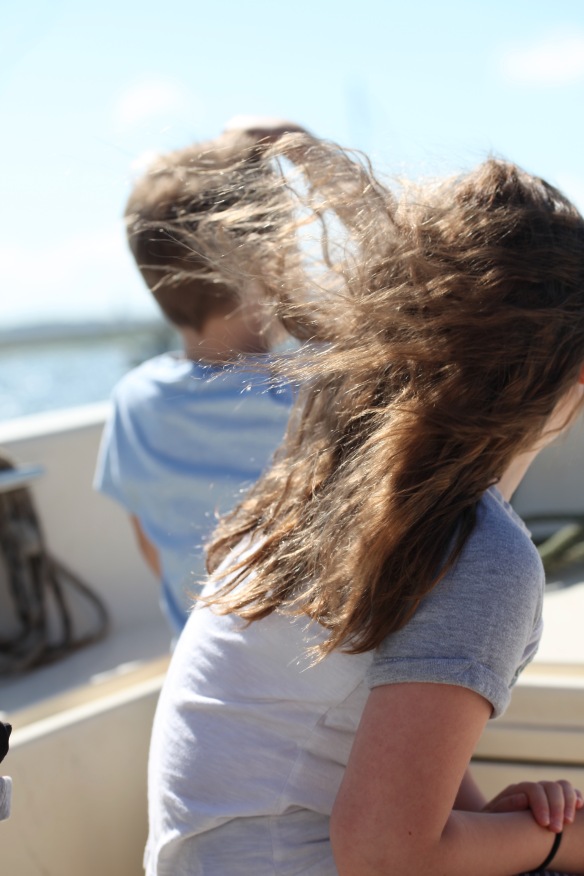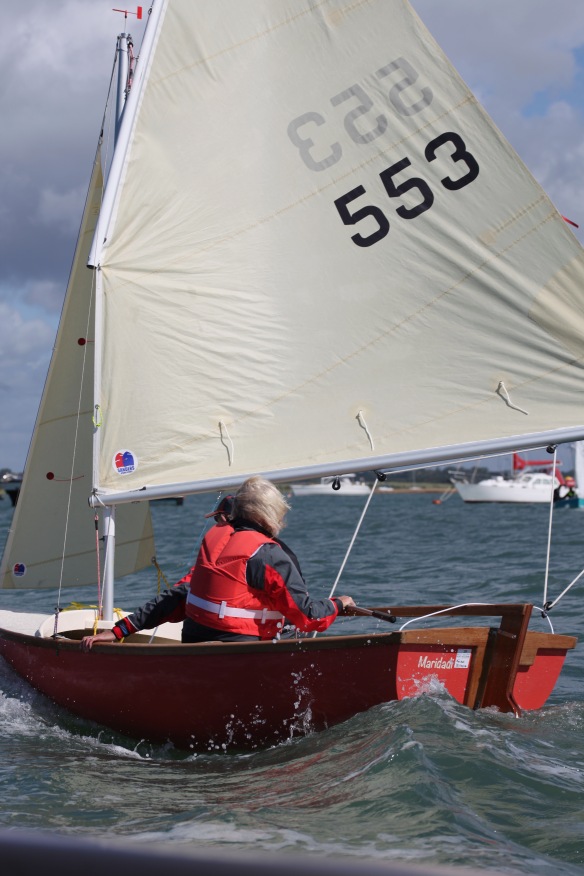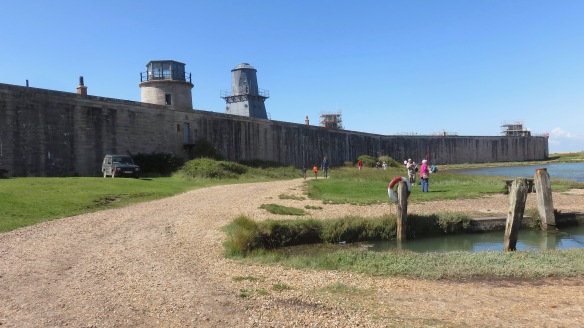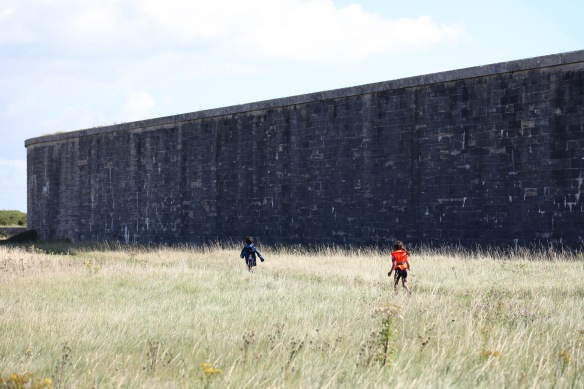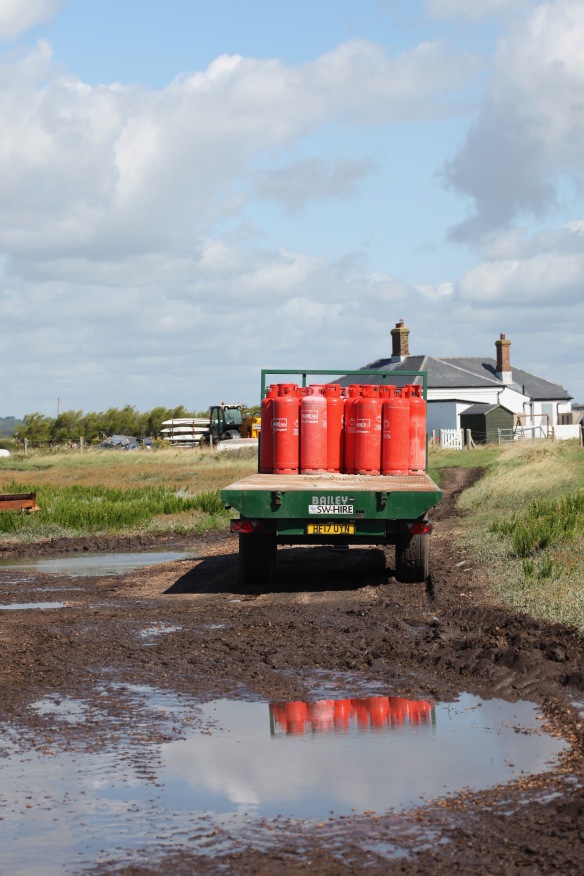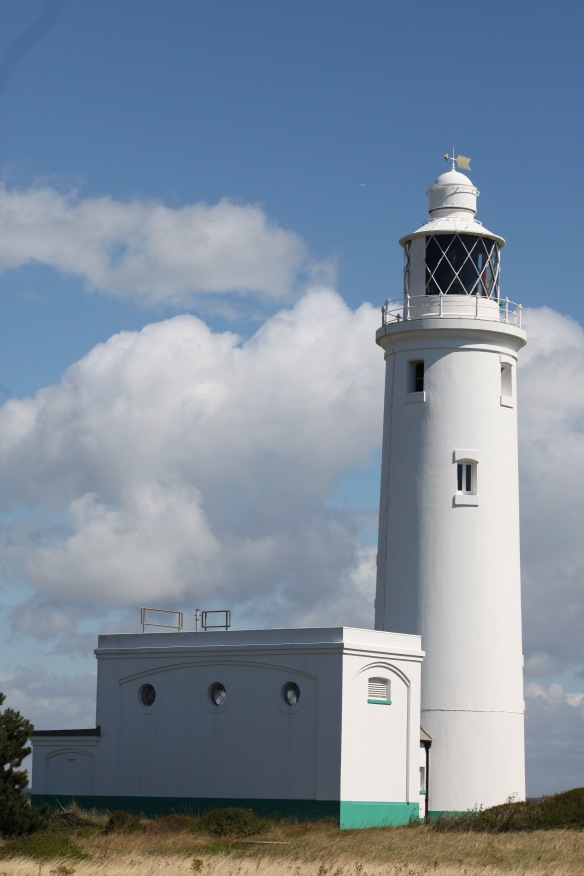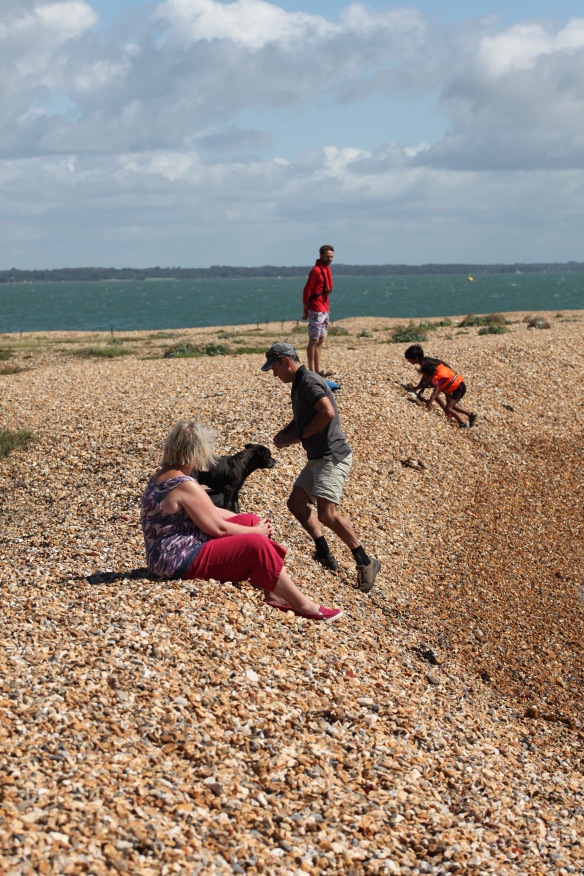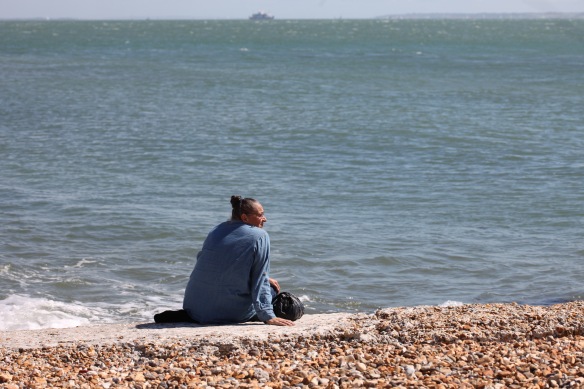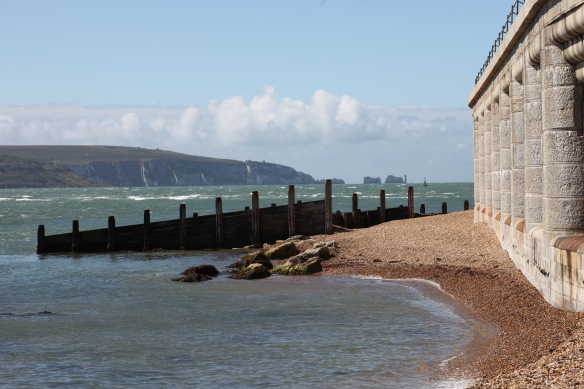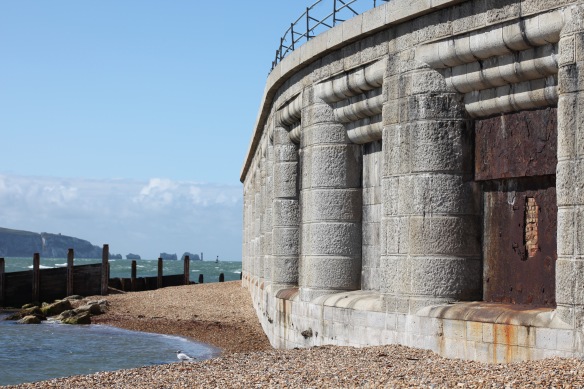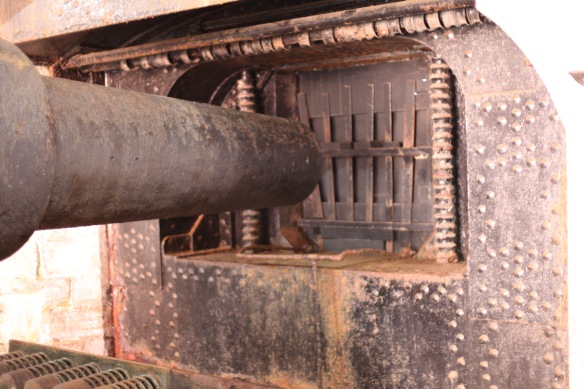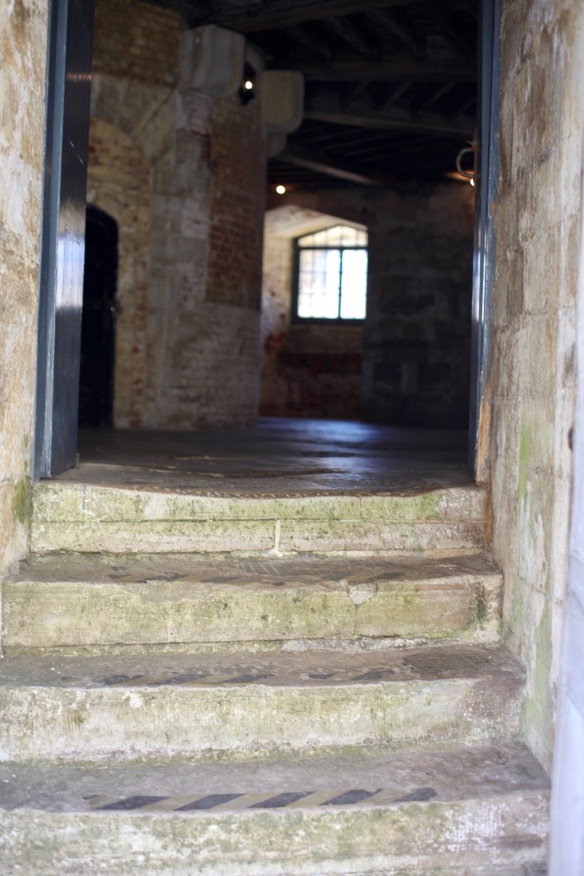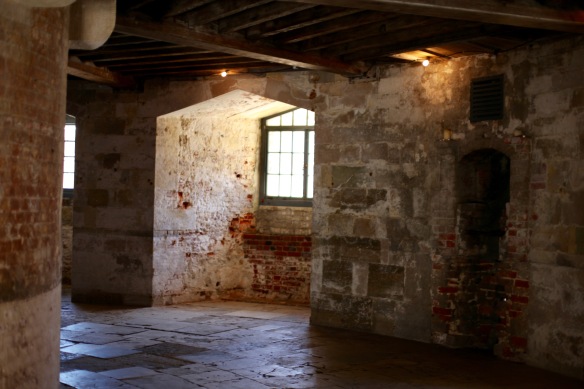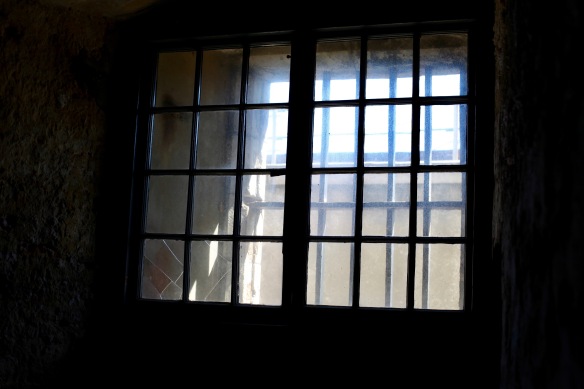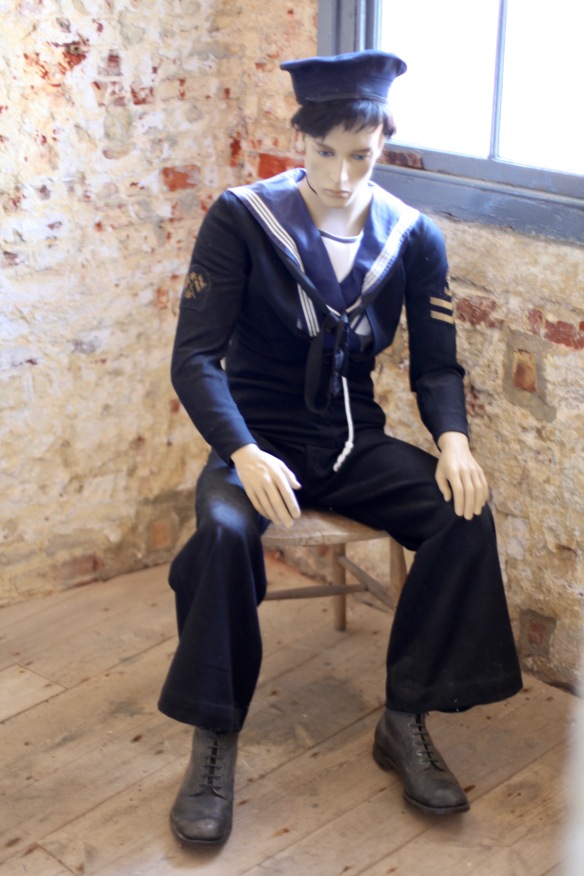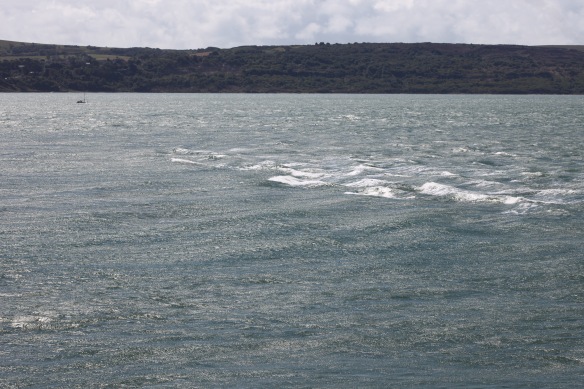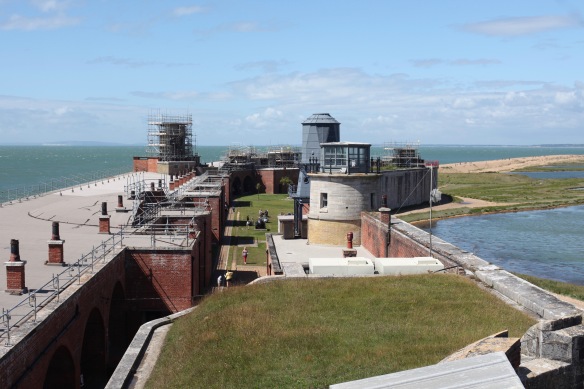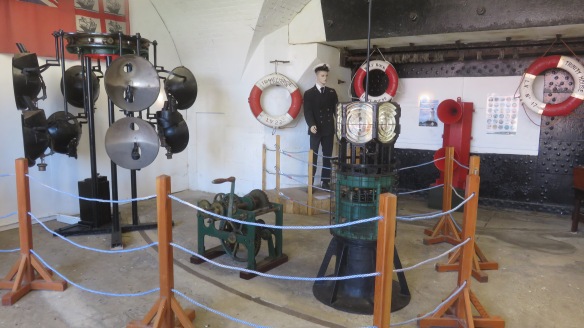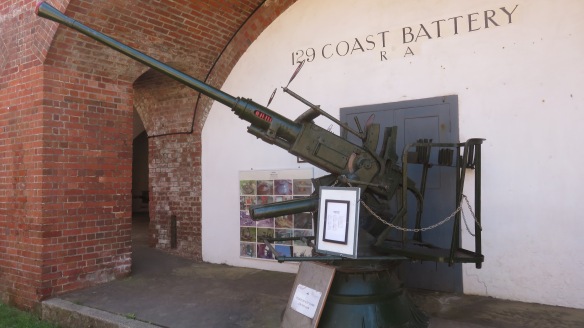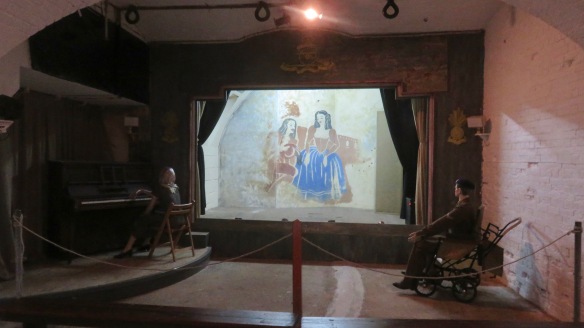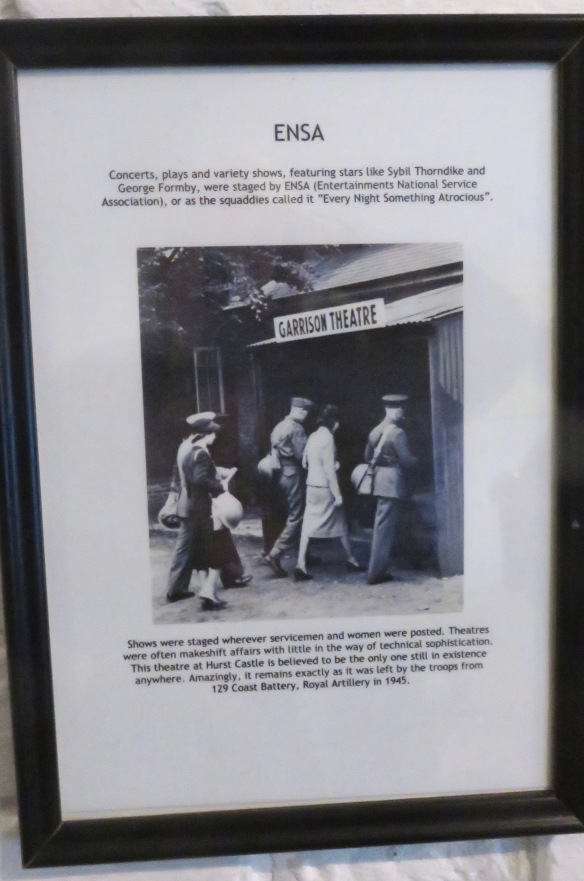CLICK ON IMAGES TO ENLARGE. REPEAT IF REQUIRED.
This morning we set off to spend the best part of the day on a trip to Hurst Castle.
We began with a drive to Keyhaven to park the car and take a ferry to the castle, perched as it is on a spit in the middle of The Solent.
A youthful group were preparing for a sailing trip in the harbour.
Our small boat could take twelve people with weight evenly distributed on each side. I caused some amusement when I asked one small boy how much he weighed. There was keen competition to sit in the front.
A yacht sped past us on our way over.
We disembarked after our short trip,
and were soon confronting the castle walls
along which a couple of children ran freely.
A delivery of Calor Gas was in progress.
Maybe it was destined for the lighthouse.
We walked past this to the shingle bank
that is the nearest viewpoint to the Isle of Wight and The Needles.
Here a Wing battery forming coastal defence from late Victorian times flanks the Solent, and a gull takes a rest.
The 38 ton guns that fired from here are capable of firing a 12 1/2 inch shell, weighing 820 lbs, nearly 3 1/2 miles.They became part of the castle’s secondary armament and were kept permanently loaded.
Hurst Castle was built between 1541 and 1544 as one of a chain of artillery defences protecting key ports and landing places round southern England from Continental attack. It was sited to guard the Needles Passage, the narrow western entrance to the Solent, and gateway to the trading port of Southampton and the new naval base at Portsmouth.
The castle soon developed into powerful fortress. On occasion it was also used as a prison. King Charles 1 was briefly held captive there during the Civil War.
Having begun our tour in the Victorian section, we turned back and walked through the gateway to the Tudor original building.
The stone steps leading up to the first floor were reasonably manageable.
We wandered around the large circular room with its stone floors, mixed material walls,
and reinforced windows.
A young sailor had been left behind by his ship.
Ascending the outside wall was a further set of steps that were much more daunting;
through a door at the top of this flight, a spiral staircase became ever steeper.
Having reached the highest level a notice advised us to lower our heads. This involved almost crawling through the doorway. Young Toby, probably the only person up there who could stand upright, was delighted to provide my photograph with a sense of scale. He was rather chuffed to learn that his photograph would go round the world this evening.
From this viewpoint Jackie notice a peculiar meeting of currents in The Solent;
and we were able to look down on the West Wing, where we then enjoyed a wholesome lunch in the café.
Of the many other exhibitions and displays of information, were a number on the lighthouse;
a Bofors 40mm gun, designed in the 1930s, which was still in service in 2013, making it one of the longest serving artillery pieces of all time.
We were fascinated by the Garrison Theatre which is possibly the last such establishment to survive from the Second World War.
ENSA, or the Entertainments National Service Association, was known to the squaddies as Every Night Something Atrocious.
Apart from signing off in my usual manner, I have to leave the trip there, and report on the return home tomorrow.
This evening we dined on Jackie’s splendid penne pasta arrabbiata with which she drank Hoegaarden Anno 1445, and I drank Giulio Pasotti Bardolino Classico 2016.
